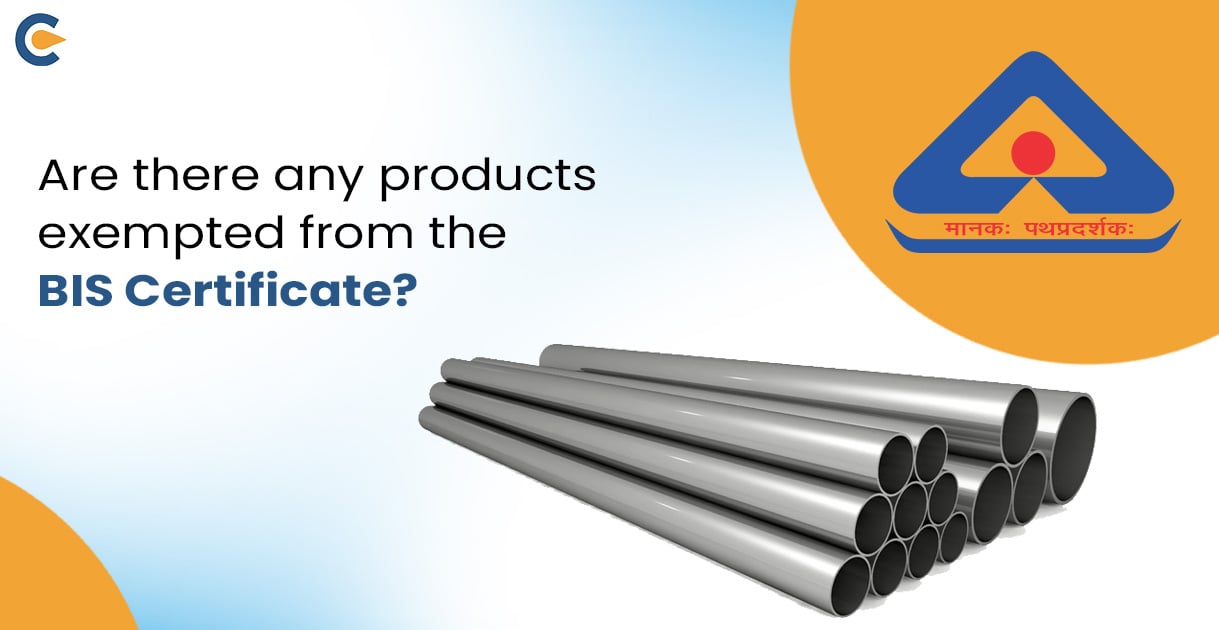BIS certification is a consumer product quality standard used by the Government of India. It is administered through a body known as the Bureau of Indian Standards (BIS) and ensures that consumer products, goods, and electronic and industrial goods meet the required energy efficiency and safety standards. The examination and certification process involves preparing applications, testing products through BIS-approved laboratories and documents, and adhering to specific Indian quality standards. BIS certification is not only regulatory compliance but also a mark of product quality, safety, and regulatory compliance with industry standards.
Products Covered under the BIS Registration Scheme
The Bureau introduced a Compulsory Registration Scheme in 2012 to regularize and standardize consumer products available in the market. The Ministry of Electronics and Information Technology has two product certification schemes in under the BIS protocols.
- There is Scheme 1 for Indian Standards Institution or ISI registration,
- Scheme 2 for Compulsory Registration Scheme.
Benefits of Having a BIS Certification
A BIS certification signifies that a particular product meets the generally accepted product standards for quality, safety, and efficiency. Indian Consumers rely on the BIS mark for reliability and credibility and proactively trust the effectiveness of BIS-certified products;/It ensures peace of mind regarding the products they buy and use and enables them to make informed decisions about the products they offer. The benefits of having a BIS certification are:
Trust of the Customers
BIS-certified products indicate that a particular product complies with the mandatory product quality and safety standards, providing assurance of its ability to work efficiently and discharge the functions for what it is meant for, posing doubt and concern in the minds of the customers over the reliability and safety of the product.
Environment Friendly
ISI certification emphasizes the product is compliant with standards of energy efficiency, promoting environment-friendly methods of production, reducing energy consumption, and decreasing dependency on conventional pollutant-emitting products and processes.
Conformity with International Quality Standards
BIS Registration and ISI certification opens opportunities for export and foreign trade of the product, as it aligns the certified products with international trade practices and standards and helps build brand value for manufacturers of, especially Electronic Devices and IT product manufacturers. BIS-ISI Standards are universally accepted and are considered at par with international standards such as the International Standard Organization (ISO). Products exempted from the BIS Certificate and subsequently registered as per BIS rules not only face issues with building credibility in international product markets but also in obtaining export certificates such as IEC, DGFT Certificate etc.
Products exempted from the BIS Certificate
Though BIS Certification signifies that a product is quality checked and fit and safe for consumer use, there a several products that are exempted from BIS certificate requirements. Under the Compulsory Registration Scheme, there are 63 Electronic equipment and goods and IT Devices, 5 solar devices and equipment, and 8 low-voltage switchgear and control gear devices which are covered under the Compulsory Registration Scheme for self-deceleration under the BIS rules.
In order to manufacture products exempted from the BIS Certificate, which are covered under the Compulsory Registration Scheme, those products or goods must satisfy at least one of the following requirements,
The abovementioned field is in the category of products exempted from the BIS Certificate since BIS Certification will not be relevant to the goods in the abovementioned scenario. For instance, if an importer imports 65-inch LED TVs that are larger than 1.5 by 0.8 meters and are not produced in quantities of more than 100 units annually.
Conclusion
BIS Registration is of utmost importance for consumer goods and devices. It signifies the safety, quality, and marketability of the manufactured product and makes it fit to be sold or exported in the Indian and International markets. Despite the compulsory registration scheme of BIS, there are certain products exempted from the BIS Certificate. These products must fulfil certain technical criteria in order to be granted exemption from BIS Registration. Nevertheless, if a product or device does not have a BIS registration and ISI mark, it is not considered a quality product or consumer-friendly in the market. It becomes difficult to import or distribute the product in foreign markets and obtain several Licenses and clearances in India itself.
At Corpbiz, we understand the importance of industrial licensing for products, especially BIS Registration. Statutory licensing and registration for products under the BIS Regime is a prerogative to ensure your products are up to the mark and qualitative. Our dedicated legal and compliance team can help you in obtaining BIS certification for your products. To know more, visit us today!
Frequently Asked Questions
What is the Significance of the BIS Certificate?
BIS certification is a consumer product quality standard used by the Government of India. It is administered through a body known as the Bureau of Indian Standards (BIS) and ensures that consumer products, goods, and electronic and industrial goods meet the required energy efficiency and safety standards.
Is BIS Registration compulsory for all Products?
As per the BIS Compulsory Registration Scheme and ISI Registration Scheme, 63 Electronic equipment and goods and IT Devices, 5 solar devices and equipment, and 8 low-voltage switchgear and control gear devices are covered under the Compulsory Registration Scheme for self-deceleration under the BIS rules.
Is BIS the only quality standard for consumer products in India?
No, there are several other quality standards for various consumer products in India. For example, AGMARK for agricultural products, HALLMARK for gold jewellery, BEE mark for Electrical Appliances, FSSAI for processed and packaged food products among others.
Is ISI Certification recognized internationally?
Yes, the BIS Certificate conforms to international standards of product quality and customer safety, and commercial quality. BIS certified products can be easily exported and imported to and from India without much government clearance required.
What is the Validity of BIS registration?
BIS Registration remains valid for a period of 2 years, after which it is required to be renewed.
How can Corpbiz help obtain BIS Registration for my products?
We at Corpbiz are a dedicated licensing and services provider with a pan-global clientele. You can rely on professional expertise and services to serve your needs effectively. To know more about our price quotes, visit us today.
Is BIS Certification important for importing goods?
Yes, BIS certification is essential for importing goods.
Is BIS a statutory body?
Yes, BIS is a statutory body in India.
Do BIS labs test products for any customer?
No, BIS Laboratories does not conduct commercial testing; rather, it only examines the product for compliance with BIS Conformity Assessment Schemes. The services of other outside laboratories, as well as those recognized by BIS and authorized, can be used for commercial testing.
Is BIS mandatory for export?
Manufacturers must get BIS registration (CRS) for some items or BIS certification (ISI) under the Foreign Manufacturers Certification Scheme (FMCS) in order to export to India.
Read Our Article: Different Form Required For BIS CRS Registration













